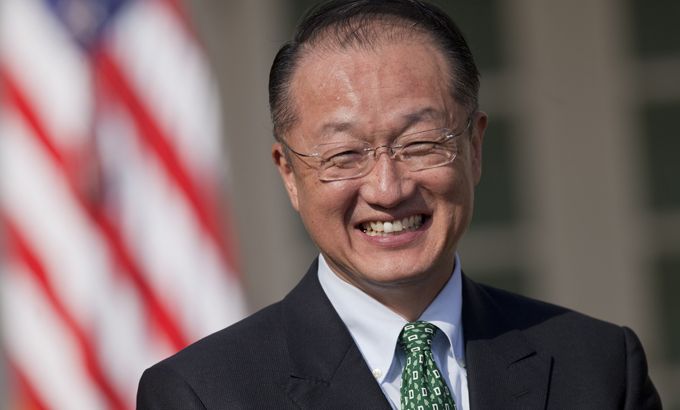
Will the World Bank change direction?
As the World Bank is expected to select a new president, we discuss what challenges the institution is facing.
The next president of the World Bank is expected to be named next week, and for the first time the US is facing a real challenge over the bank’s leadership.
The World Bank is made up of 187 nations. It distributes billions of dollars in loans each year to developing countries for projects to develop healthcare, education and infrastructure.
Its official goal is to reduce poverty, but a number of critics argue that the so-called “free market” policies the Bank insists upon in return for the loans are often harmful to economic development. They argue the policies can often exacerbate the conditions that produce poverty in the first place.
Keep reading
list of 4 itemsEcuador weighs security, international arbitration in latest referendum
‘Triple spending’: Zimbabweans bear cost of changing to new ZiG currency
Boeing hit with 32 whistleblower claims, as dead worker’s case reviewed
|
“The world bank is basically not a bank first of all. It’s a development institution. And it needs professional leadership. It needs the leadership of somebody who deals in the fight against poverty, hunger and disease.” – Jeffrey Sachs, Colombia University |
One of the strongest criticisms of the World Bank is the way it is governed. A small number of economically powerful countries provide most of the institution’s funding and get to choose the leadership and senior management. As a result, critics argue, their interests – and especially those of the US – are prioritised.
This year an attempt is underway to change that.
The candidates in the running for the World Bank’s top job are: Ngozi Okonjo-Iweala, who is the current Nigerian finance minister and a former managing director of the World Bank. She has the endorsement of the African Union.
Jose Antonio Ocampo is Colombia’s former finance minister and was nominated by Brazil. A former UN official, he says he would put emphasis on helping poor countries manage climate change. Reports are coming in that he is about to stand aside in favour of Okonjo-Iweala as the developing world’s candidate.
The man nominated by the US however is widely expected to get the job – Dr Jim Yong Kim. He has a background in public health, having run amongst other things the HIV/Aids programme at the World Health Organisation.
Jeffrey Sachs, an economist from Colombia University, nominated himself for the World Bank’s top job and received support from several countries. But he is now supporting Kim’s candidacy because he says he will bring change to the institution.
So what challenges is the World Bank facing? And how likely is it to change direction under a new president?
Joining us to discuss these issues are: Elaine Zuckerman, the president of Gender Action, an organisation which aims to ensure that women and men equally benefit from investments made by insitutions like the World Bank in developing countries. She is also a former employee of the World Bank; Mark Weisbrot, from the Center for Economic and Policy Research; and Jelson Garcia, the Asia Program Manager at the Bank Information Center, an organisation which advocates for public accountability and transparency in the operations and governance of the World Bank.
|
“What we really need is a one-country-one vote process like in the UN. Right now there are 25 members only on the World Bank board of directors and they are largely unrepresented of the 187 member countries that the World Bank has. Actually I would depict that board of directors as a neo-colonial club. There was a neo-colonial club established whereby the winners of World War II became the masters of the World Bank and the IMF. And this has little changed to this day.” Elaine Zuckerman, the president of Gender Action |
FACTS: WORLD BANK:
- The World Bank was created in 1944 at the Bretton Woods Conference
- The World Bank is a financial institution with 187 member nations
- Since its creation all World Bank presidents have come from the US
- The World Bank provides loans and assistance to developing nations
- In 2010, the World Bank provided almost $59bn in loans
- Critics say the conditions imposed on loans hinder the economic progress
- One of the world Bank’s official aims is to reduce poverty
- The World Bank determines poverty as living on less than $1,25 per day
- The World Bank says that poverty has dropped from 1,9bn in 1990 to 1,3bn in 2008
- In 2011, the global population was 7bn, up from 5,3bn in 1990
- World Bank poverty statistics do not factor in the global inflation